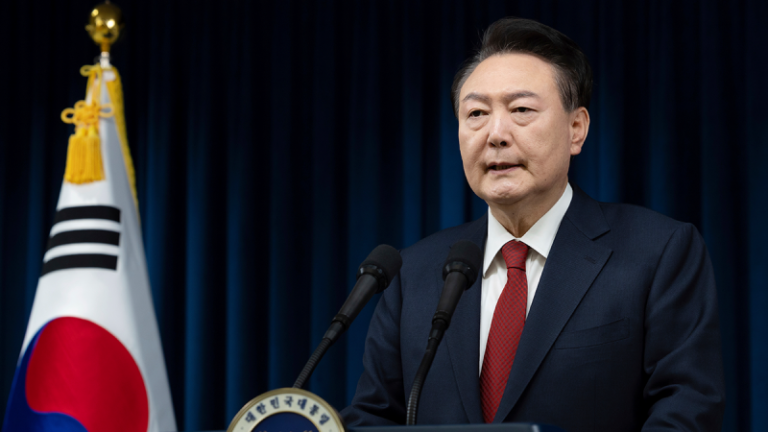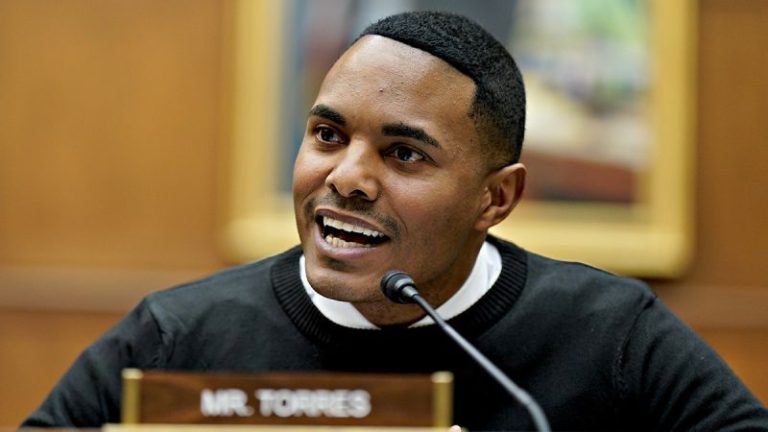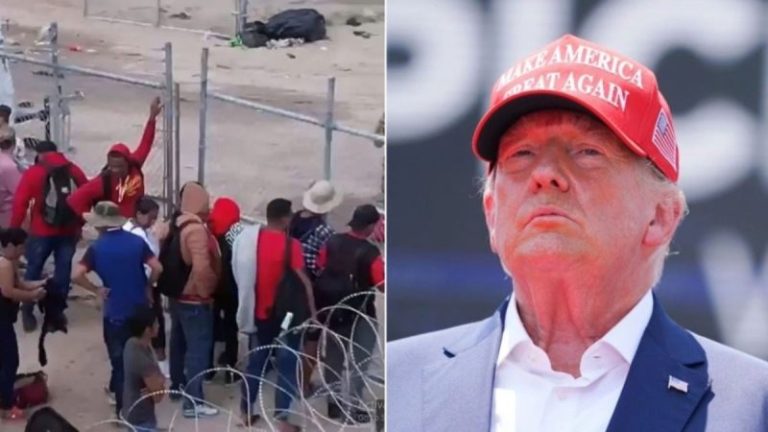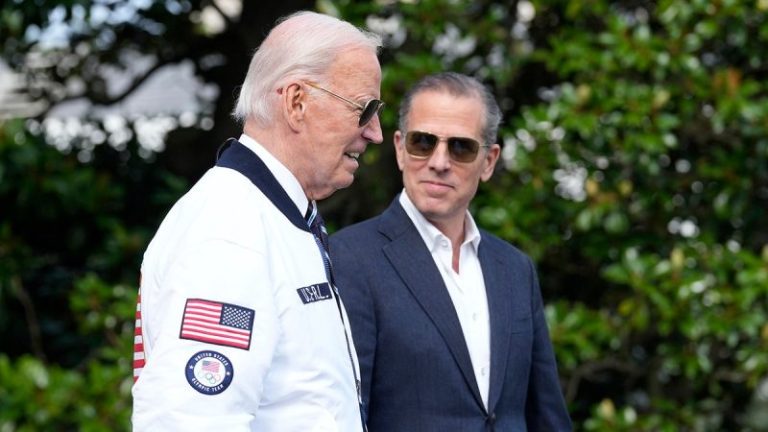The stunning collapse of Bashar al-Assad’s regime in Syria has sent shock waves throughout the region and beyond, marking a dramatic turning point after nearly 14 years of civil war. Assad’s rule, long sustained by Russia and Iran, has come to an end, leaving his former patrons scrambling to manage the fallout. The implications for these two powers, as well as for the broader regional and global landscape, are profound.
Russia’s involvement in Syria was never just about Assad, experts say. Securing a foothold in the Middle East was a cornerstone of Moscow’s strategy, with the Khmeimim Air Base and Tartus naval facility serving as vital assets for projecting power. However, with Assad now gone, Russia’s assets in Syria are at risk.
Rebekah Koffler, strategic military intelligence analyst and author of ‘Putin’s Playbook,’ emphasized the significance. ‘Syria has been a key theater in the broader proxy conflict between Russia and the U.S. losing Assad represents a strategic defeat for Russia, costing them critical bases in the Middle East and further stretching their military resources as they continue fighting in Ukraine.’
Ksenia Svetlova, a senior non-resident fellow at the Atlantic Council, described the fallout as, ‘Russia has been exposed for what it really is- a power that overpromises but underdelivers. They came to Syria with grand ambitions, but apart from helping Assad survive through joint efforts with Iran and Hezbollah, they achieved little. The post-war reconstruction never began, and with Russia now focused on Ukraine, Syria became a secondary priority. Now, Russia has abandoned Assad, revealing itself as an unreliable partner.’
She said this failure sends a message to Moscow’s allies. ‘In the Middle East, Russia now looks weak compared to the United States. Syrians are stunned that Moscow left ‘Baby Assad,’ as the regime opponents call him, to collapse, while the U.S. has demonstrated strength by standing firmly with Israel in its time of need.’
The fall of Assad highlights Syria’s role as a battleground in the U.S.- Russia proxy war, as Koffler explained. ‘Before Assad’s fall, President Trump reportedly called Putin to de-escalate tensions, but instead, Putin doubled down by escalating his nuclear doctrine, signaling a refusal to back down. Now that Assad, one of Putin’s key allies, has lost Syria, the balance of power shifts dramatically. With this loss, Trump may have newfound leverage over Putin, as losing Syria undermines Russia’s influence in the region and strains its already overstretched resources. This could open a path for Trump to negotiate the end of the war in Ukraine from a stronger position, leveraging Putin’s setbacks in Syria.’
IRAN
For Iran, Assad’s fall deals a devastating blow to its long-term regional strategy. Syria was a crucial link in Tehran’s ‘Axis of Resistance,’ connecting Iran to Hezbollah in Lebanon and enabling the smuggling of weapons across the region via a corridor stretching from Iran through Iraq and Syria into Lebanon.
‘This is an unprecedented, historic moment,’ Svetlova said. ‘The Iranian ‘Ring of Fire,’ meticulously built by Qassem Soleimani, has been shattered. If Soleimani was still alive, he would be horrified to see the collapse of his life’s work.’
The weakening of Hezbollah during its war with Israel further exacerbated Assad’s vulnerability, leaving the regime without critical support on the ground. Hezbollah had been a key force assisting Assad’s army during the civil war, but after sustaining heavy losses to Israeli forces, it could no longer provide sufficient support. Meanwhile, Iran refrained from sending additional troops to bolster Assad.
An Iranian journalist, speaking anonymously to Fox News Digital from Iran, shed light on the internal reaction in Iran. ‘The majority of Iranians are celebrating Assad’s downfall. For years, Khamenei and the Revolutionary Guard funneled resources into preserving the Axis of Resistance, draining the Iranian people’s wealth. Now, with Assad gone, there is hope that Iran’s oppressive influence in the region will weaken. This is a moment of joy for those who have long opposed the regime’s policies.’
‘The Iranian people and the regime are worlds apart in their perspectives,’ said another Iranian dissident who spoke anonymously to Fox News Digital from the country. ‘While the regime has largely watched Assad’s downfall from the sidelines, likely due to its own internal weaknesses or strategic agreements, the Iranian people are celebrating. There’s a wave of hope and joy spreading across social media, fueled by the idea that revolutions in countries aligned with the Islamic Republic – past or present – could spark a domino effect. For many, Assad’s collapse represents the weakening of the resistance axis and a glimmer of possibility for change within Iran itself.’
While Assad’s fall creates opportunities for a new order in the Middle East, it also presents significant risks. The surprise attack on Assad’s forces, led by the Salafi-jihadist organization Hayat Tahrir al-Sham (HTS) under the command of Abu Mohammed al-Golani, underscores the complexity of the situation. HTS, Syria’s most powerful rebel faction, evolved from the al-Qaeda-linked Nusra Front but claimed to sever ties with the group in 2016. It remains designated a terrorist organization by the U.S. and other nations.
‘Who will fill the void?’ Koffler warned. ‘The rebels aren’t good people – they’re the same extremists we’ve seen before. While they may appear on Western media wearing a green T-shirt and giving polished interviews, the reality is different. Removing one dictator often leads to even worse outcomes, as we saw in Iraq and Libya.’
Avner Golov, former senior director of Israel’s National Security Council and vice president at Mind Israel, believes there is a potential upside for both the U.S. and Israel.
‘The collapse of Assad’s regime underscores the failures of Russia and Iran as powers in the region. Meanwhile, the U.S. has shown its strength by standing with Israel and choosing the winning side. This is a critical opportunity for Washington to leverage its position and build a coalition of moderate Arab states – Saudi Arabia, the UAE, Jordan, and Egypt – with Israel, to counter both Sunni and Shia Islamist forces. This coalition could provide a stabilizing force in the region and counter the growing influence of extremist groups.’
Golov said there are ramifications for Beijing. ‘China has been largely absent in the Middle East conflicts, focusing instead on its global economic goals. In contrast, Russia has proven itself unreliable in Syria, retreating while the U.S. supported its allies. This presents a unique opportunity for America to strengthen its position in the Middle East amid the collapse of the Iranian axis.’










